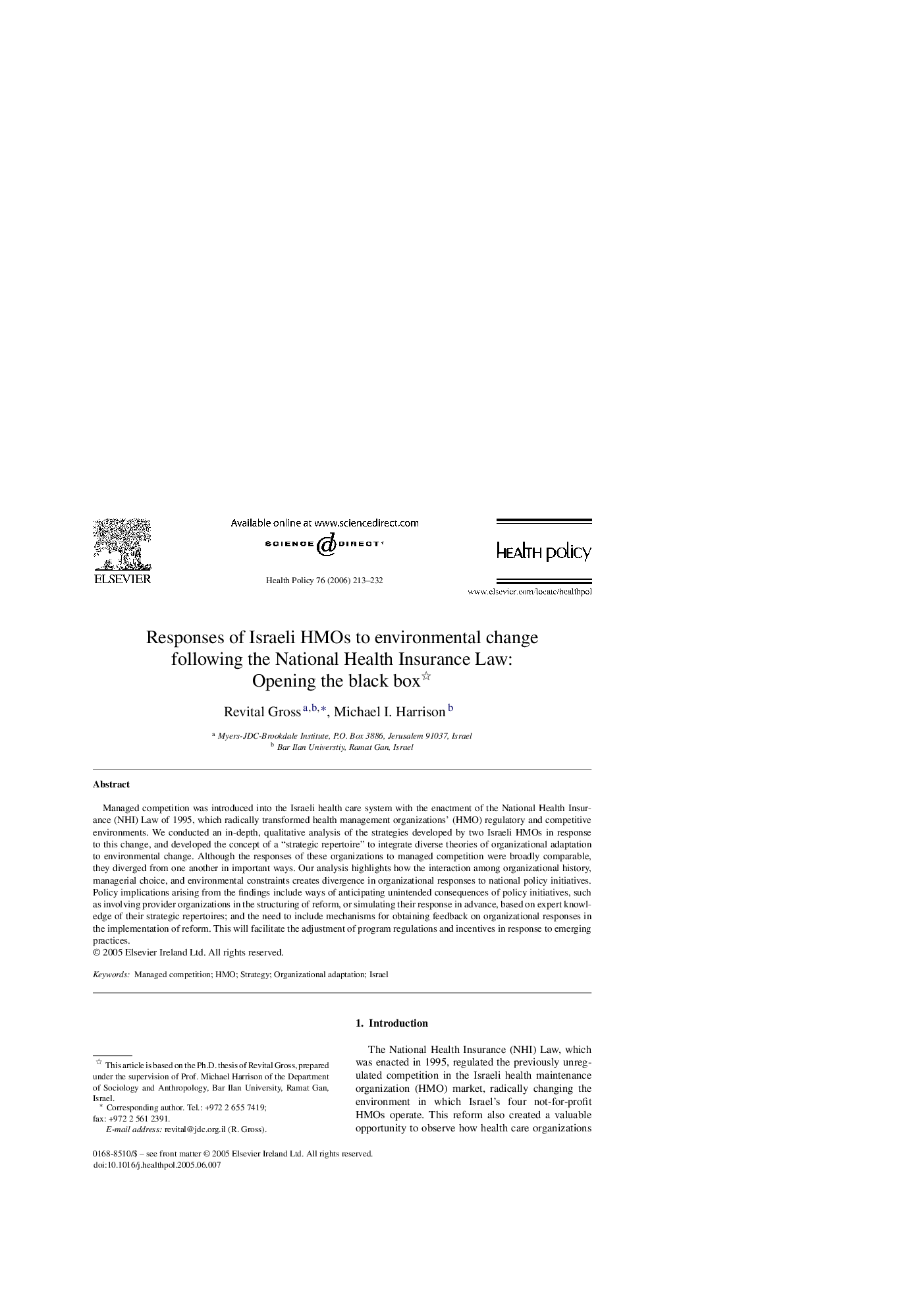| Article ID | Journal | Published Year | Pages | File Type |
|---|---|---|---|---|
| 4199218 | Health Policy | 2006 | 20 Pages |
Managed competition was introduced into the Israeli health care system with the enactment of the National Health Insurance (NHI) Law of 1995, which radically transformed health management organizations’ (HMO) regulatory and competitive environments. We conducted an in-depth, qualitative analysis of the strategies developed by two Israeli HMOs in response to this change, and developed the concept of a “strategic repertoire” to integrate diverse theories of organizational adaptation to environmental change. Although the responses of these organizations to managed competition were broadly comparable, they diverged from one another in important ways. Our analysis highlights how the interaction among organizational history, managerial choice, and environmental constraints creates divergence in organizational responses to national policy initiatives. Policy implications arising from the findings include ways of anticipating unintended consequences of policy initiatives, such as involving provider organizations in the structuring of reform, or simulating their response in advance, based on expert knowledge of their strategic repertoires; and the need to include mechanisms for obtaining feedback on organizational responses in the implementation of reform. This will facilitate the adjustment of program regulations and incentives in response to emerging practices.
